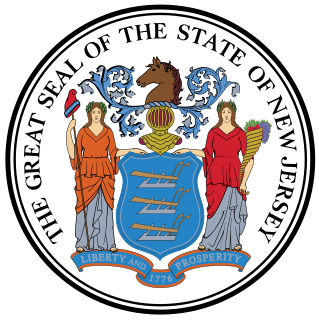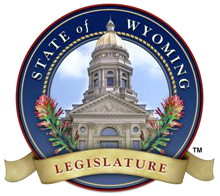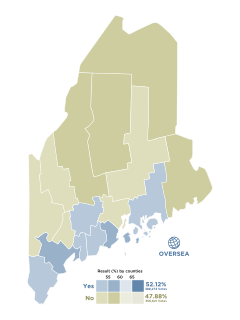Related Research Articles

The New Jersey Legislature is the legislative branch of the government of the U.S. state of New Jersey. In its current form, as defined by the New Jersey Constitution of 1947, the Legislature consists of two houses: the General Assembly and the Senate. The Legislature meets in the New Jersey State House, in the state capital of Trenton.

The Florida Legislature is the legislature of the U.S. State of Florida. It is organized as a bicameral body composed of an upper chamber, the Senate, and a lower chamber, the House of Representatives. Article III, Section 1 of the Florida Constitution, adopted in 1968, defines the role of the legislature and how it is to be constituted. The legislature is composed of 160 state legislators. The primary purpose of the legislature is to enact new laws and amend or repeal existing laws. It meets in the Florida State Capitol building in Tallahassee.

The lieutenant governor of North Carolina is the second-highest elected official in the U.S. state of North Carolina and is the only elected official to have powers in both the legislative and executive branches of state government. A member of the North Carolina Council of State, the lieutenant governor serves a four-year term with a two consecutive term limit. The current lieutenant governor is Mark Robinson, a Republican, who has held the office since 2021. The Constitution of North Carolina designates the lieutenant governor the ex officio president of the State Senate and a member of the State Board of Education. They are also required to serve as acting governor of the state in the event of the governor's absence, and assume the governorship in the event it becomes vacant.

The Michigan Senate is the upper house of the Michigan Legislature. Along with the Michigan House of Representatives, it composes the state legislature, which has powers, roles and duties defined by Article IV of the Michigan Constitution, adopted in 1963. The primary purpose of the Legislature is to enact new laws and amend or repeal existing laws.

The lieutenant governor of Texas is the second-highest executive office in the government of Texas, a state in the U.S. It is the second most powerful post in Texas government because its occupant controls the work of the Texas Senate and controls the budgeting process as a leader of the Legislative Budget Board.

The New Jersey Senate was established as the upper house of the New Jersey Legislature by the Constitution of 1844, replacing the Legislative Council. There are 40 legislative districts, representing districts with average populations of 232,225. Each district has one senator and two members of the New Jersey General Assembly, the lower house of the legislature. Prior to the election in which they are chosen, senators must be a minimum of 30 years old and a resident of the state for four years to be eligible to serve in office.

The Maine Senate is the upper house of the Maine Legislature, the state legislature of the U.S. state of Maine. The Senate currently consists of 35 members representing an equal number of districts across the state, though the Maine Constitution allows for "an odd number of Senators, not less than 31 nor more than 35". Unlike the lower House, the Senate does not set aside nonvoting seats for Native tribes. Because it is a part-time position, members of the Maine Senate usually have outside employment as well.

The Oklahoma Senate is the upper house of the two houses of the Legislature of Oklahoma, the other being the Oklahoma House of Representatives. The total number of senators is set at 48 by the Oklahoma Constitution.

The Wyoming Senate is the upper house of the Wyoming State Legislature. There are 30 Senators in the Senate, representing an equal number of constituencies across Wyoming, each with a population of at least 17,000. The Senate meets at the Wyoming State Capitol in Cheyenne.

The Louisiana State Senate is the upper house of the state legislature of Louisiana. All senators serve four-year terms and are assigned to multiple committees.

The government of the State of New Jersey is separated into three distinct branches: legislative, executive, and judicial. The powers of the State of New Jersey are vested by the Constitution of New Jersey, enacted in 1947, in a bicameral state legislature, the Governor, and the state courts, headed the New Jersey Supreme Court. The powers and duties of these branches are further defined by acts of the state legislature, including the creation of executive departments and courts inferior to the Supreme Court.

The Maine Republican Party is an affiliate of the United States Republican Party in Maine. It was founded in Strong, Maine, on August 7, 1854. The party currently does not control the governor's office or either chamber of the Maine Legislature, nor either of Maine's two U.S. House seats and only controls one of the state's U.S. Senate seats.

Troy Dale Jackson is an American logger and politician from Allagash, Maine currently serving as president of the Maine Senate. Jackson represents Maine Senate District 1, representing northern Aroostook County, including the towns of Fort Kent, Madawaska and Caribou. Jackson has served as Senate President since 2018.
Michael D. Thibodeau is an American politician and businessman from Maine. He was a Republican State Senator from Maine's 23rd District, representing all of Waldo County. He graduated from Hampden Academy in 1984. He was first elected to the Maine State Senate in 2010 after serving from 2006 to 2010 as state representative. He also served on the board of selectmen of Winterport.
Alton E. (Chuck) Cianchette was an American businessperson and politician from Maine.

Maine Question 5, formally An Act to Establish Ranked-Choice Voting, is a citizen-initiated referendum question that qualified for the Maine November 8, 2016 statewide ballot. It was approved by a vote of 52% in favor, 48% opposed. It sought to change how most Maine elections will be conducted from a plurality voting system to a ranked-choice voting system. It appeared on the ballot along with elections for President of the United States, Maine's two U.S. House seats, the legislature, five other ballot questions, and various local elections. The referendum was successful, making Maine the first state to use ranked choice voting for its federal elections.

Frank George Farrington was an American lawyer and politician from Maine. Farrington, a Republican from Augusta, severed four terms in the Maine Legislature, including two in the Maine House of Representatives and two in the Maine Senate. He lost the Republican gubernatorial primary in 1924 to Ku Klux Klan-backed Ralph Owen Brewster by just 581 votes.

The 2024 United States elections are scheduled to be held, in large part, on Tuesday, November 5, 2024. During this presidential election year, the President of the United States and Vice President will be elected. In addition, all 435 seats in the United States House of Representatives and 33 of the 100 seats in the United States Senate will be contested to determine the membership of the 119th United States Congress. Thirteen state and territorial governorships and numerous other state and local elections will also be contested.

The 2020 United States House of Representatives elections in Maine were held on November 3, 2020, to elect the two U.S. representatives from the state of Maine, one from each of the state's two congressional districts. The elections coincided with the 2020 U.S. presidential election, as well as other elections to the House of Representatives, elections to the United States Senate and various state and local elections. The election was conducted with ranked choice voting, as per the result of a referendum passed in 2016.
References
- ↑ "Legislators Biographical Search". Maine State Law and Legislative Reference Library. Archived from the original on 20 December 2015. Retrieved 27 September 2014.
- 1 2 3 "Jeff Butland; was SBA administrator, Maine lawmaker". Boston Globe . Associated Press. August 3, 2004. Retrieved 3 January 2014.
- ↑ "Jeffrey H. Butland". Archived from the original on 4 January 2014. Retrieved 3 January 2014.
- 1 2 "Legislative Record of the One Hundred And Seventeenth Legislature of the State Of Maine" (pdf). Maine State Legislature. December 7, 1994. p. 6. Retrieved November 18, 2014.
This being done, Senator Jeffrey H. Butland of Cumberland, was duly elected President of the Senate of the 117th Legislature. The Senator from Oxford, Senator Hanley (...) escorted the President-elect to the Governor's Office for the purpose of taking and subscribing to the necessary oaths of office to qualify him to enter upon the discharge of the duties of the Office of the President of the Senate.